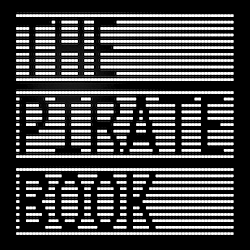 Studying can be a costly endeavor. Aside from the party budget, there are books and tuition fees to pay as well.
Studying can be a costly endeavor. Aside from the party budget, there are books and tuition fees to pay as well.
To reduce costs, some students choose to share books or buy cheaper second-hand versions. Others go a step further and venture onto the dark side, by downloading or even buying ‘pirated’ books.
These cost-saving tactics are nothing new. A few decades ago, copying machines at universities were already duplicating copyrighted works every day of the week. However, with digital books becoming more common, copying has become a breeze. This is a form of progress that publishers are not happy with.
Danish Deterrent?
Textbook piracy is happening around the globe. While enforcement is relatively rare, in Denmark several students have been
convicted
for selling pirated copies of textbooks. Publishers hoped that these cases would act as a deterrent but there are no signs that this is the case.
Danish anti-piracy group Rights Alliance recently published a
new study
, conducted by Epinion, which polled the attitudes and behaviors of students towards digital textbooks. In particular, those that are obtained illegally.
There have been several of these surveys over the years, which makes it possible to see how patterns change over time. In this case, things aren’t trending in the right direction. Despite lawsuits and public calls to avoid piracy, students continue to obtain unlicensed books from various sources.
50% Obtain Textbook Illegally
Of all the students that used digital textbooks (84%), half admit to having used at least some ‘pirated’ copies. This number has been relatively stable since 2020 and doesn’t seem to be impacted by recent prosecutions and fines handed out by the courts.
This relatively high percentage doesn’t mean that students are oblivious to the law; 70% admit to knowing that piracy is illegal.
How many books are obtained illegally can differ quite a bit. For some, it’s just a book or two, but one in four of the ‘pirating’ students acquire more than half of all textbooks through unofficial sources. And 7% of these students obtain between 91% and 100% of their books illegally.
Jail Threat Doesn’t Scare Students
Rights Alliance stresses that educational institutions have a role to play. They should put more effort into educating students on the subject, an issue that’s often overlooked.
“There is a concrete need for educational institutions to be sharper in their communication to students in this area,” says Rights Alliance director Maria Fredenslund.
“When management, teachers and tutors on the programs distance themselves from illegal sharing of study books, it has a concrete effect on the social norms within the programs,” she adds.
The question is whether this will make a massive difference. The majority of the survey respondents were already aware of the illegal nature of book ‘piracy’ but continue anyway. Apparently it goes a long way towards saving costs.
This is also reflected in the research, which found that only 18% would consider reducing their illegal textbook habits if they risked jail time. In addition, a lack of support from one’s social circle would only motivate 11% to reconsider.
It’s All About the Money
There is one key element that would sway students to go legal and that is price. The survey found that roughly half of the pirating students would purchase books if prices were significantly reduced.
To convince the majority of this group to change their behavior, prices should be at least 50% cheaper than they are now. This is probably not the solution publishers are looking for, however.
In addition to slashing prices, better access to digital books through official libraries is also mentioned as a solution by many students. Again, this is another way to reduce costs.
All in all the research shows that it will be hard to stop textbook piracy as long as the legal alternatives are considered unaffordable. Prosecuting more people and launching awareness campaigns may convince some to change their habits but, for the majority, it’s all about the money.
From:
TF
, for the latest news on copyright battles, piracy and more.
 chevron_right
chevron_right


 Studying can be a costly endeavor. Aside from the party budget, there are books and tuition fees to pay as well.
Studying can be a costly endeavor. Aside from the party budget, there are books and tuition fees to pay as well.
